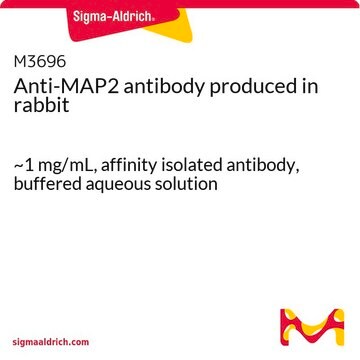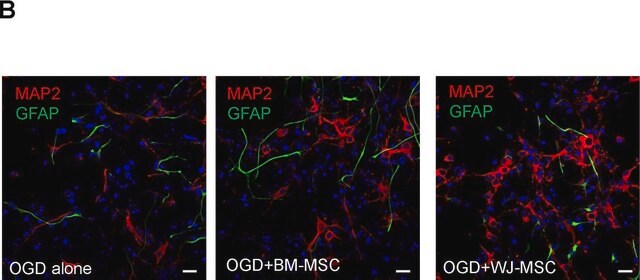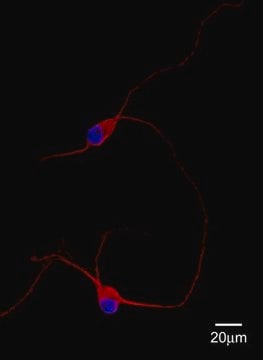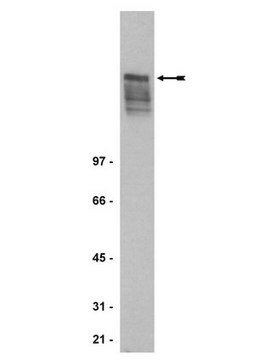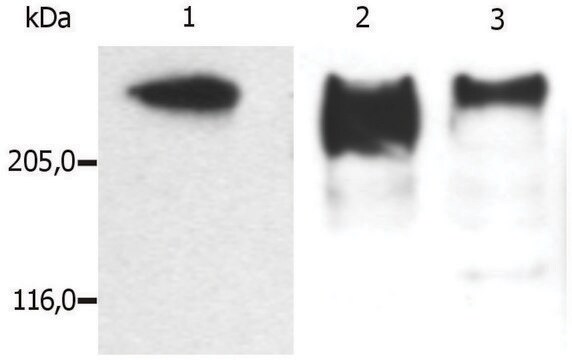M4403
Anti-MAP2 Antibody
mouse monoclonal, HM-2
Synonym(s):
MAP2 Antibody - Monoclonal Anti-MAP2 antibody produced in mouse, Map2 Antibody
About This Item
Recommended Products
Product Name
Monoclonal Anti-MAP2 antibody produced in mouse, clone HM-2, ascites fluid
biological source
mouse
Quality Level
conjugate
unconjugated
antibody form
ascites fluid
antibody product type
primary antibodies
clone
HM-2, monoclonal
mol wt
antigen ~280 kDa
contains
15 mM sodium azide
species reactivity
rat, chicken, human, mouse, bovine, quail
technique(s)
immunohistochemistry (formalin-fixed, paraffin-embedded sections): suitable
western blot: 1:1,000 using a fresh total rat brain extract or an enriched microtubule protein preparation
isotype
IgG1
UniProt accession no.
shipped in
dry ice
storage temp.
−20°C
target post-translational modification
unmodified
Gene Information
human ... MAP2(4133)
mouse ... Mtap2(17756)
rat ... Map2(25595)
Looking for similar products? Visit Product Comparison Guide
Related Categories
General description
Specificity
Immunogen
Application
Biochem/physiol Actions
Physical form
Storage and Stability
Disclaimer
Not finding the right product?
Try our Product Selector Tool.
recommended
Storage Class Code
10 - Combustible liquids
WGK
nwg
Flash Point(F)
Not applicable
Flash Point(C)
Not applicable
Choose from one of the most recent versions:
Certificates of Analysis (COA)
Don't see the Right Version?
If you require a particular version, you can look up a specific certificate by the Lot or Batch number.
Already Own This Product?
Find documentation for the products that you have recently purchased in the Document Library.
Customers Also Viewed
Our team of scientists has experience in all areas of research including Life Science, Material Science, Chemical Synthesis, Chromatography, Analytical and many others.
Contact Technical Service


